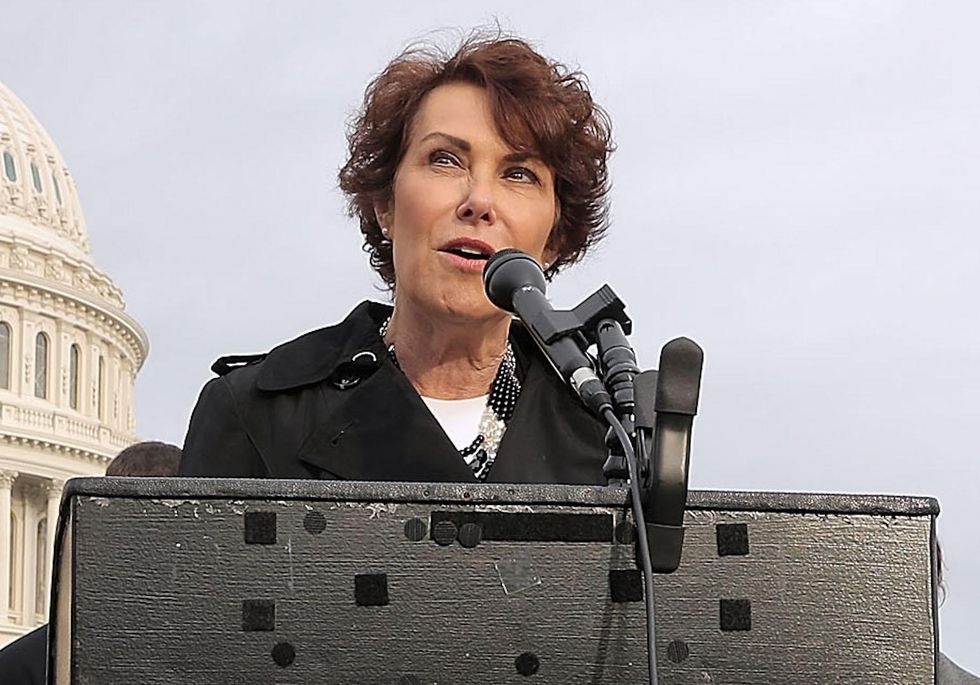
Rep. Jacky Rosen is considered the favorite to win Nevada's Democratic Senate primary on June 12 and challenge incumbent Sen. Dean Heller in November. (Chip Somodevilla/Getty Images)

Democrats have a slim chance of taking control of the Senate in November's midterm elections. Much of that chance rides on the Nevada Senate race, in which Republican Sen. Dean Heller is expected to face Democratic Rep. Jacky Rosen.
Rosen still has to clinch the Democratic nomination; she is facing a group of challengers led by Jesse Sbaih, a largely self-funded candidate who ran against Rosen for her House seat in 2016. However, with the backing of establishment Democratic leadership, Rosen is considered a heavy favorite in the June 12 primary election.
Though Heller is seen as a strong candidate with a reputation for surviving difficult races, a number of factors are leading analysts to say he is vulnerable. The include:
Rosen, 60, is a rookie representative in Nevada's 3rd Congressional District who won her House seat in 2016 in a district that Trump carried.
She's a first-generation college graduate who paid for her schooling at the University of Minnesota with waitressing jobs and student loans. After college she worked numerous jobs as a computer programmer, software developer, and designer in Nevada.
According to Politico, Rosen got on the political radar in 2013 after becoming president of her synagogue, Congregation Ner Tamid, in Henderson, Nevada, which is the largest Jewish temple in the state.
She serves on the House Armed Services Committee and the subcommittees on Tactical Air and Land Forces and Military Personnel.
Here's why she's running, according to her campaign website:
President Trump is trying to pull the ladder up behind him, leaving the middle class stranded while his super-wealthy buddies turn the federal government into a source of enrichment for themselves. Trump ridicules women, people of color, the LGBTQ community, immigrant families, and anyone who challenges him.With a majority of just two in the Senate, President Trump couldn't possibly succeed with his hateful far-right agenda without the support of Senator Dean Heller. But instead of standing up to Donald Trump and demanding bipartisan cooperation for the good of the country, Senator Heller voted for Trump's agenda 96 percent of the time in 2017,
Some of her stances include:
Her lack of political baggage is considered a strength. On the flip side, a lack of experience and name recognition could hurt her in the election.
Taking advantage of her lack of political history and the fact that many people are not yet familiar with her, an aggressive advertising campaign by Heller has the potential to set the narrative on Rosen to voters.
Voter turnout will be crucial, as Heller himself has admitted. Audio obtained by the Las Vegas Review-Journal last month recorded Heller saying "If we have 100,000 more registered Democrats than Republicans in the state of Nevada or more, I can't win."
Conversely, he said "if we can get that number below 50,000, I can't lose."
In 2016, there were 90,000 more registered Democrats than Republicans in Nevada. That disparity has dropped to about 59,000 as of April.